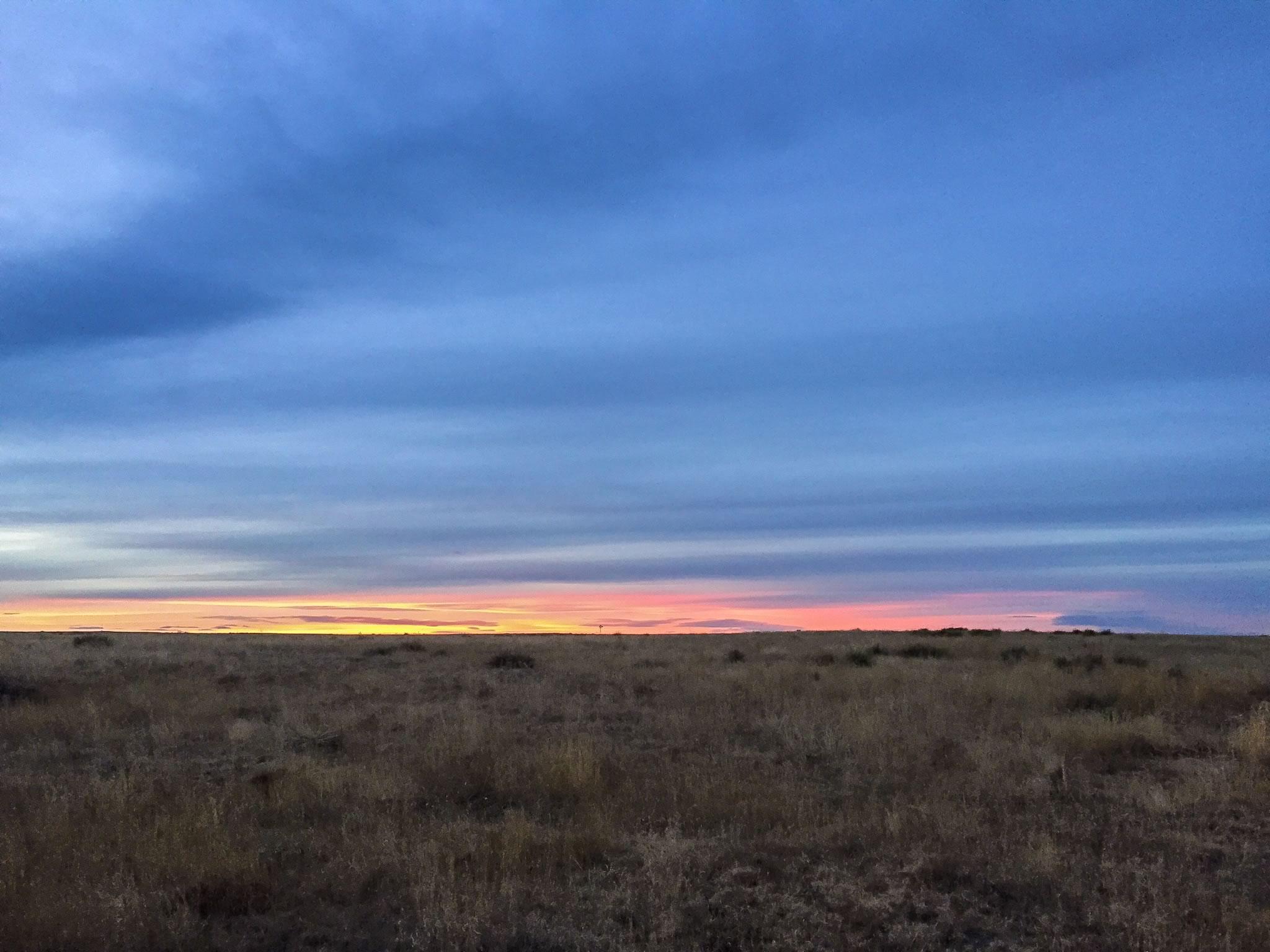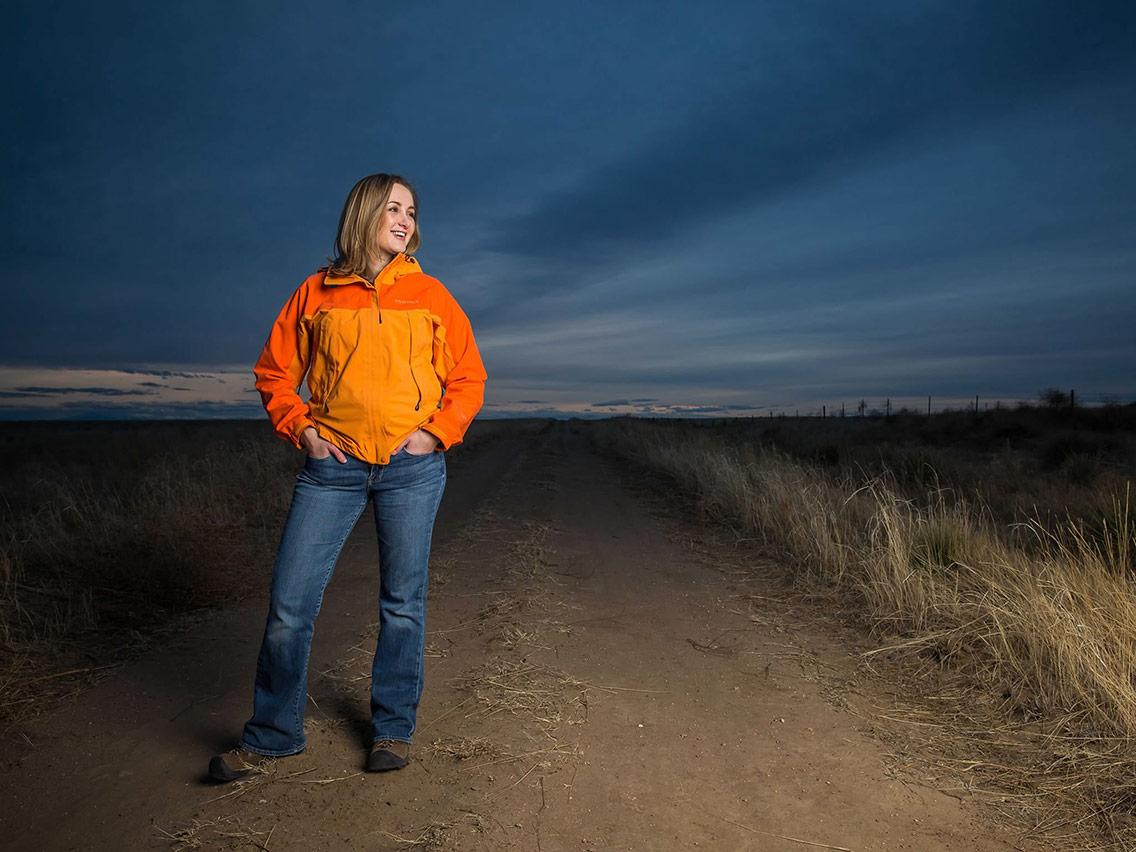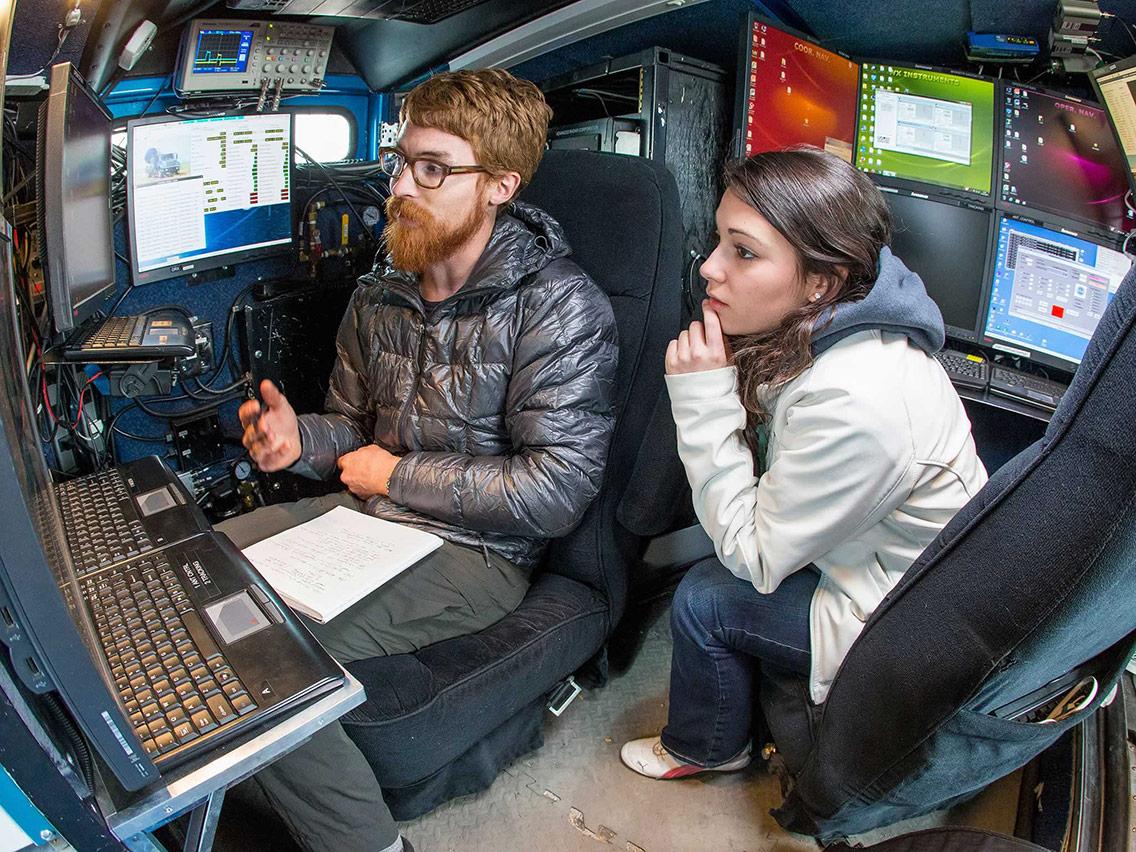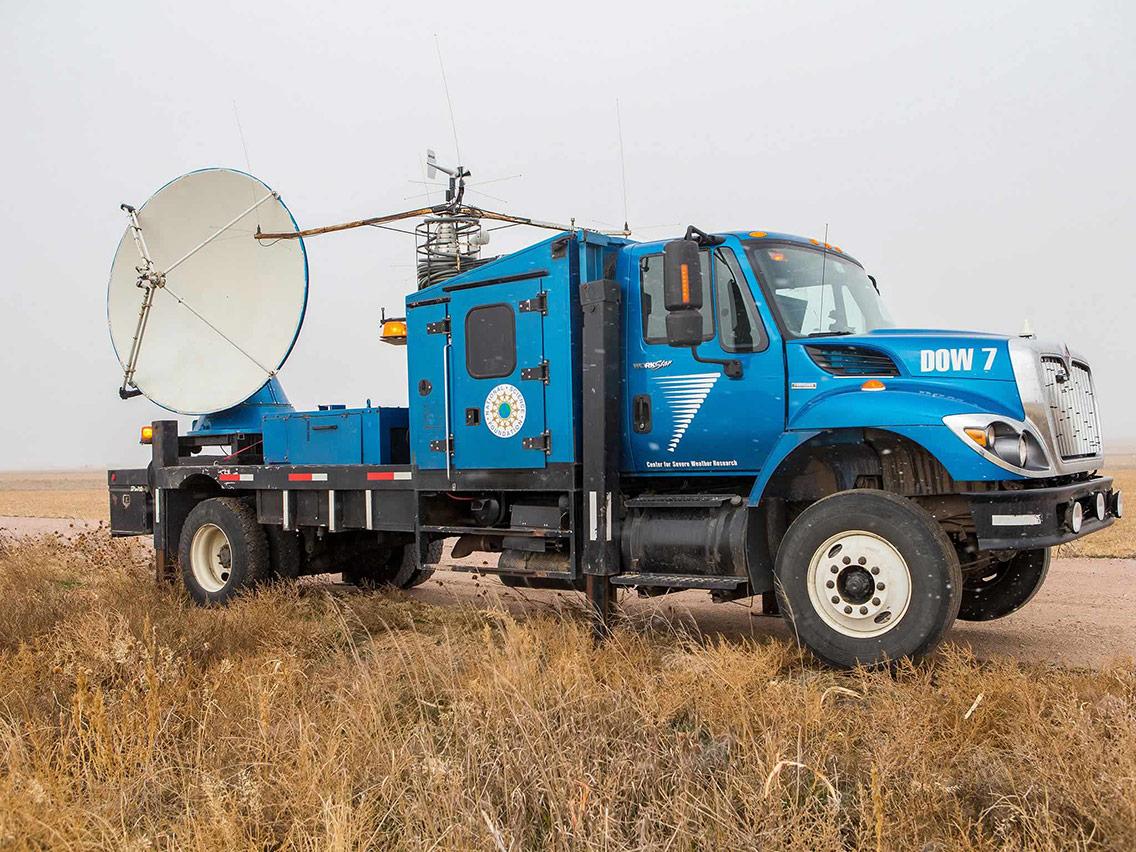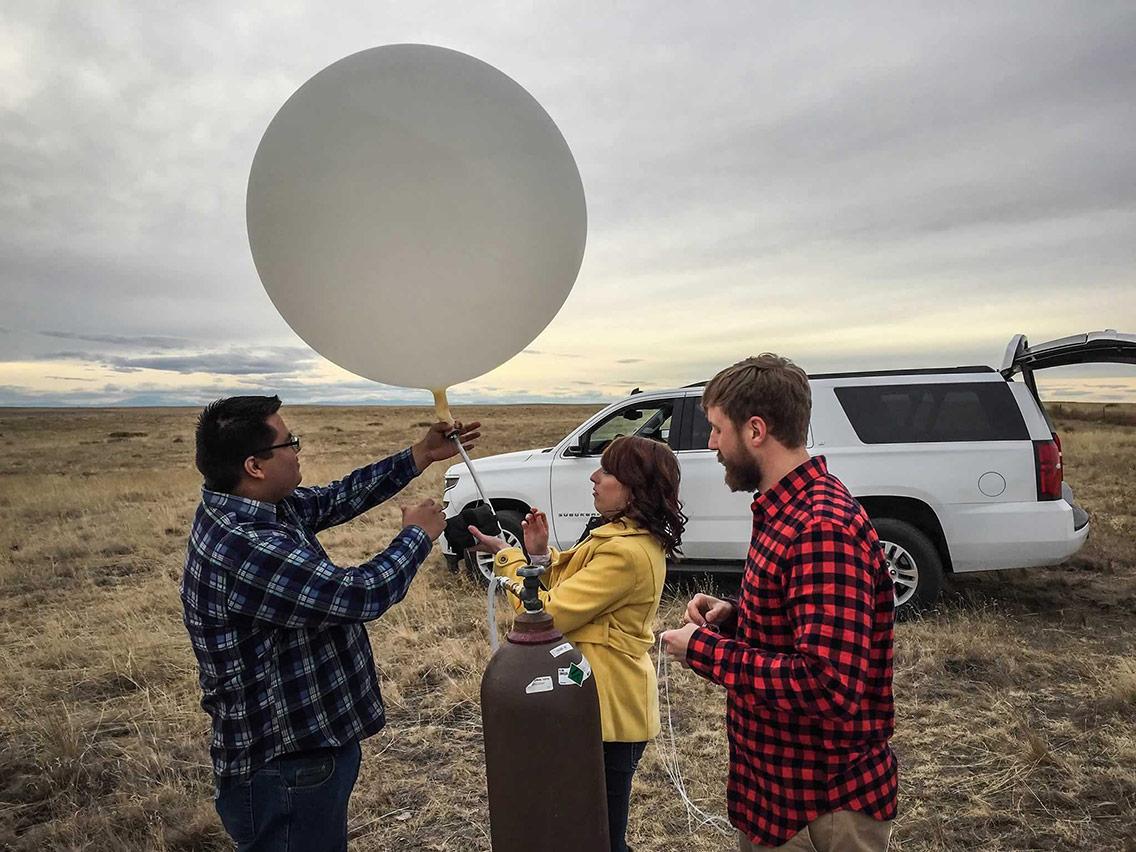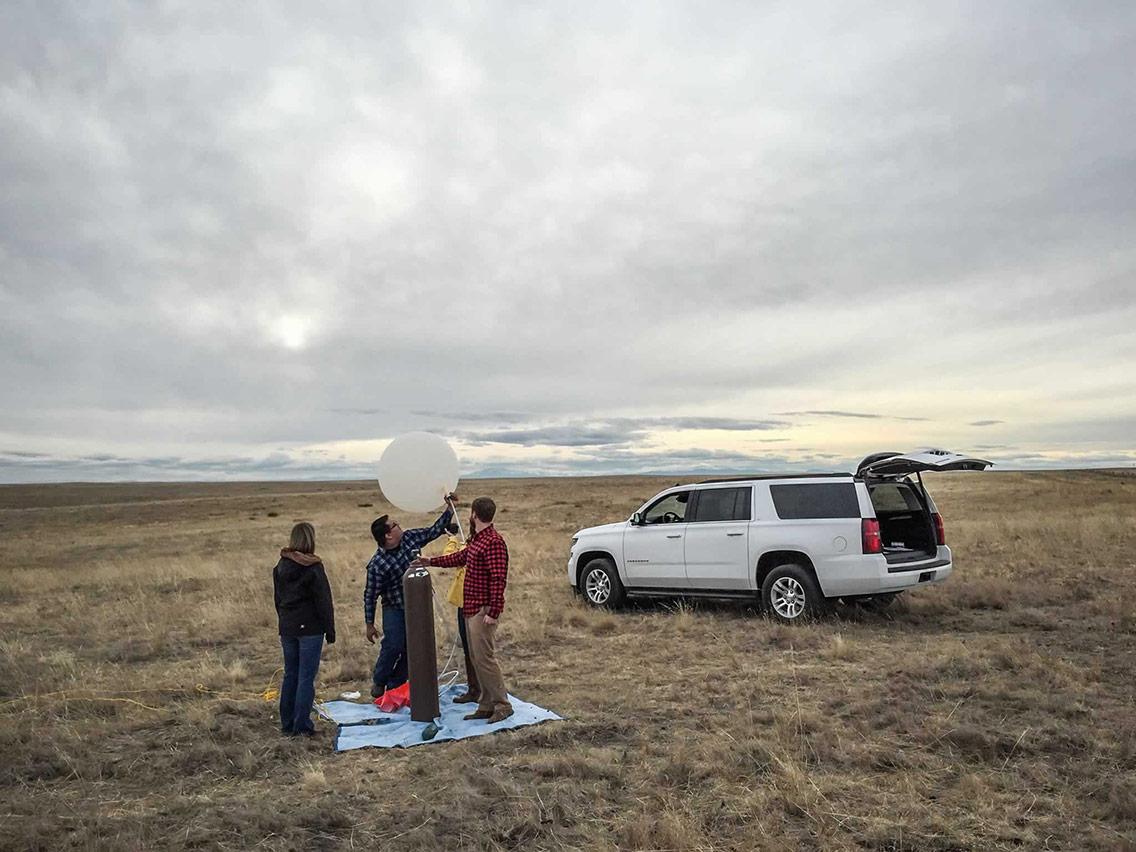There she worked closely with her graduate advisor and mentor, Steve Nesbitt, learning
the ropes of running a field project in a fast-paced research position.
Those experiences shaped her philosophy and goals for her own work as a professor
when she came to UNC in 2012.
“I was really excited to see an opening at UNC,” she says. “I was looking for a relatively
small program with a small student-to-professor ratio. I wanted to be directly involved
in all my courses and not have teaching be peripheral to my research.”
Combined with her desire to work closely with students was her interest in finding
a location well suited for studying and teaching meteorology.
“We’re in a really great location because it is very easy for us to take fun, instructive
field trips. To the east we’re in a good location for thunderstorm activity, and we
can go west and look at mountain meteorology.”
Plus, there are several great state-of-the-art facilities close to Greeley. CHILL
Radar, which is funded by the National Science Foundation, is located just north of the Greeley Airport. Just west of Boulder, there’s the
National Center for Atmospheric Research. UNC itself has geared up with high-tech
instruments and facilities to give students practical experience on campus.
Flynn’s research involves looking at “land-surface atmosphere interaction,” and it’s
research perfectly suited for Colorado climate issues.
By studying data that compares soil moisture, and correlating that data with known
local weather patterns, she’s working to determine how conditions on land may affect
local weather. Her research involves areas of western Mexico, along the Sierra Madre
Occidental mountain range, and along the Western Ghat mountain range in India. One
question her research focuses on, for example, is whether or not surface irrigation
could affect local weather patterns.
Along those lines, she and her colleague, UNC meteorology professor Cindy Shellito,
PhD, are co-advisors for their graduate student, Ben Abel. He’s looking at how the
growth of the Front Range urban corridor may affect local weather patterns. And that,
says Flynn, raises a lot of questions.
Given Colorado’s water issues, will the growing urbanization of the environment change
the amount of rainfall we see east of the mountains? And what does this mean in terms
of regional climate change?
“The ultimate goal of the research I’m doing and the research Ben is doing is to try
to provide information so that citizens and policymakers can make good decisions.”
It’s research that Flynn says offers exciting opportunities for UNC undergraduates
in meteorology.
“The meteorology department (made up of Flynn, Shellito and colleague David Lerach,
PhD) wants to make this a personal experience for students,” Flynn says.
Shellito, a Fulbright Scholar headed to Ecuador this spring for research in paleoclimatology,
advocates engaging undergraduate and graduate students in research in the field and
in the classroom.
Lerach, a member of the National Ski Patrol and actively involved in Colorado search
and rescue, focuses on mesoscale meteorology and works within the community to spread
regional weather and climate awareness and the impacts of weather on mountain environments.
His work offers students opportunities for field experience in the mountains.
All three faculty members bring real experience to their students, something that
Flynn knows helps engage and inspire them. “Many students said that recent fieldwork
with the Doppler on Wheels (DOW) was the most valuable part of their undergraduate
education so far--a chance for them to apply the things they were learning in the
classroom to real time situations. What they learn in the field really stays with
them for the rest of their lives.”
Flynn’s own enthusiasm for meteorology hasn’t flagged since graduate school. “You
know you picked the right career,” she says, “when you’ve spent your life studying
one area and still find it beautiful and inspiring.”

